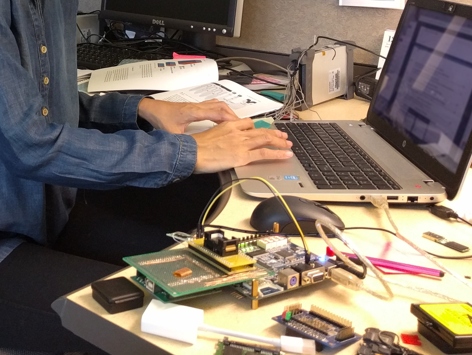
International Cooperation
International Cooperation on Digital Forensics
Cybercrime and cyberattacks often cross national borders. For instance, malicious computer programs made overseas are causing damage in Japan. Imported electronic devices are now widely distributed in Japan and there are many cases in which they are used for criminal purposes.
To respond to this situation, it is necessary to promote comprehension of the latest technological trends in foreign countries, sharing information with foreign security organizations, and accumulate the latest knowledge necessary for analysis. To this end, the NPA collects technical information and deepen cooperation with other countries through presentations and discussions at international conferences specializing on digital forensics and participation in working-level meetings with foreign security organizations, in order to further strengthen its response capabilities.
Other International Cooperation in the Field of Digital Forensics

The NPA has been sending technical staff to overseas academic institutions to conduct surveys and research on digital forensics. In recent years, research has been focused on effective analysis methods for cryptographic assets and observation methods for the dark web. In addition, the staff have been learning advanced technologies by participating in training courses held by overseas security organizations.
Support for Overseas Police
The Info-Communications Department, in cooperation with the Japan International Cooperation Agency (JICA), conducts training course for police officers of foreign security agencies to improve their cybercrime response capabilities.
The trainees learn about countermeasures and technological response methods against cybercrime taken in Japan, cooperation with private companies in Japan, and Japanese international cooperation through lectures, trainings, and facility tours. They also make action plans that will be implemented after they return from Japan.
This training course not only transfers knowledge and technology on how to deal with cybercrime, but also contributes to building mutual cooperative relationships with security organizations in other countries.
The training courses have been conducted since 2015, and 23 trainees from 20 countries participated in the training course in 2019.